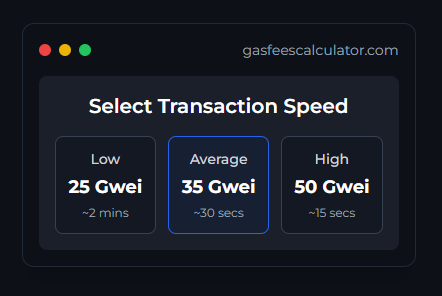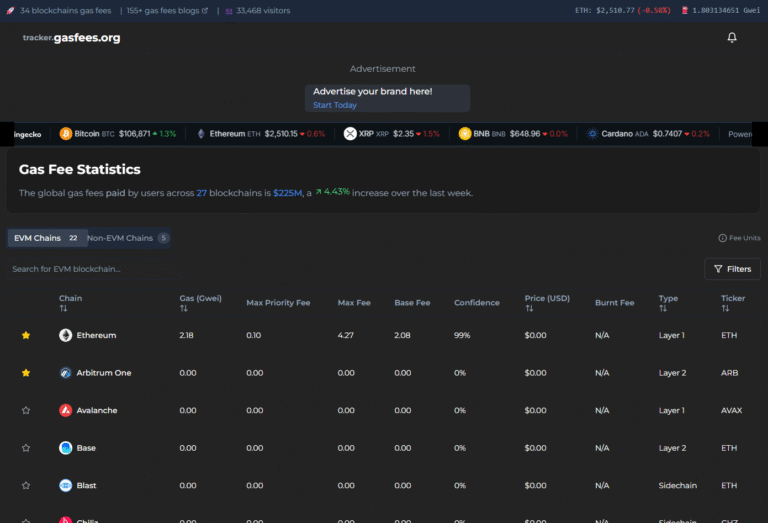Calculate Your Transaction Fees
Estimate gas fees, convert currencies, and track historical trends for Ethereum, Polygon, Arbitrum, Optimism, and BSC transactions based on current network conditions.

Live Gas Fees Across 27+ Chains — In One Dashboard.

not your keys, not your coins
Trezor Safe 5
Ultimate convenience with a vibrant color touchscreen & confirmation haptic feedback. Experience crypto security on an entirely new level.
- Enhanced usability with a 1.54” touchscreen
- Secure Element, PIN, passphrase protected
- Crypto management with the Trezor Suite app
Disclaimer:
GasFees.org is a free resource. All blogs on this website are created using information sourced from publicly available online content. We do not offer financial advice, and any content related to cryptocurrency prices or predictions is for informational purposes only. Always do your own research and consult with a licensed financial advisor before making any investment decisions.
Affiliate Disclosure:
GasFees.org is an official affiliate of Trezor and Ledger. If you click on a link to Trezor or Ledger and make a purchase, we may earn a small commission — at no additional cost to you. Thank you for supporting our work!
👉 Site Map | Terms of Service | Privacy Policy
© 2025 | GasFees.org. All Rights Reserved.
